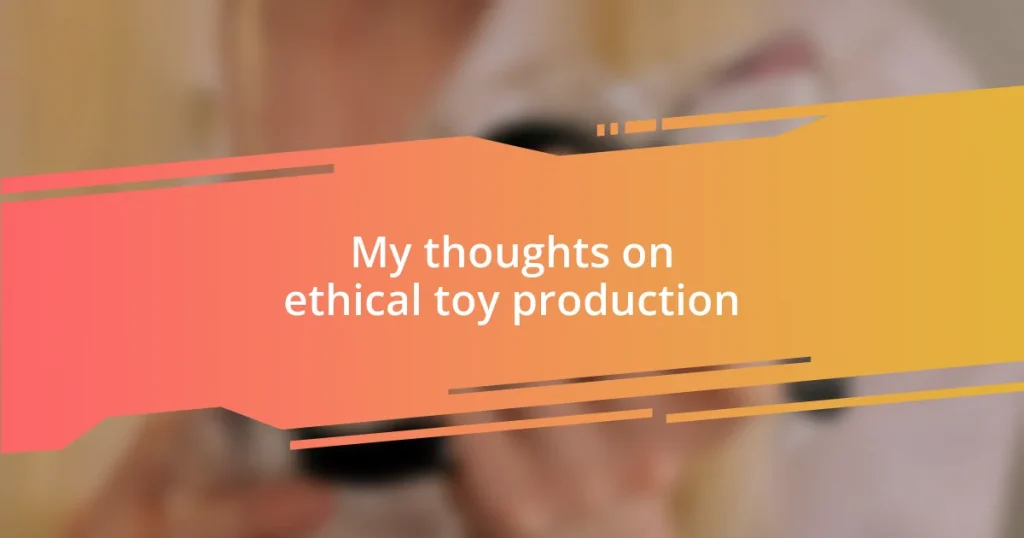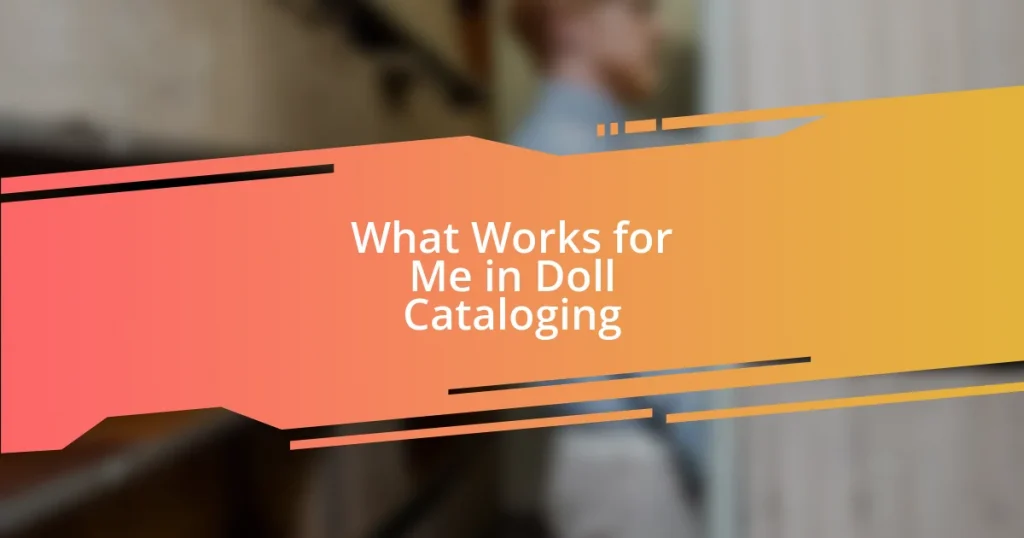Key takeaways:
- Ethical toy production focuses on environmental sustainability and fair labor practices, emphasizing the importance of consumer choices on the planet and society.
- Sustainable materials in toy production help reduce waste, conserve resources, ensure child safety, and support ethical practices, contributing to a cleaner environment.
- Certifications like Fair Trade and GOTS serve as trusted guides for consumers, promoting transparency and empowering parents to support brands aligned with ethical values.
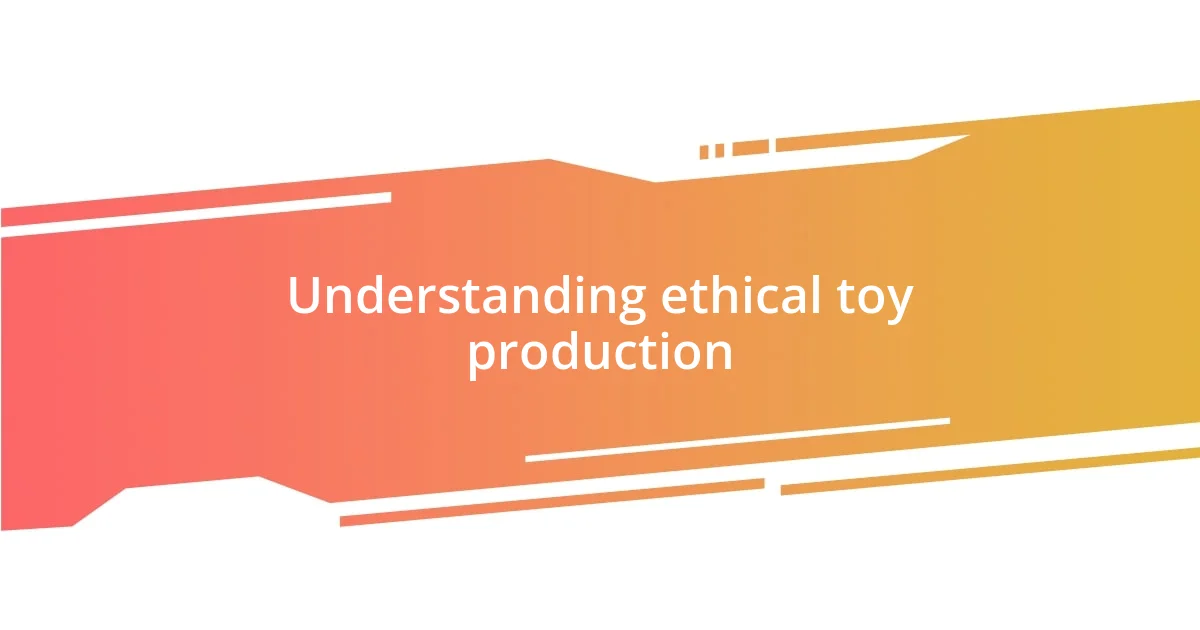
Understanding ethical toy production
Ethical toy production revolves around creating toys that are not only safe for children but also environmentally sustainable and socially responsible. I often find myself reflecting on how every purchase we make impacts the planet. Have you ever considered where the toys in your child’s room come from?
When I stumbled upon a small company producing wooden toys from reclaimed materials, I felt a sense of connection and pride in supporting a business that values sustainability. These choices show how the entire lifecycle of a toy— from sourcing materials to manufacturing and distribution— plays a crucial role in minimizing our ecological footprint. It’s fascinating how a simple toy can embody values like respect for nature and fair labor practices.
As I think about the times my kids have chosen toys that spark their creativity, I realize that ethical production goes beyond just being environmentally friendly. It’s about ensuring that the people making these toys are treated fairly. Have you ever felt a tug at your heart when you learn about a brand that empowers artisans in underserved communities? It’s these stories that make us reflect on our role as consumers and the responsibility we carry in shaping a more ethical marketplace.
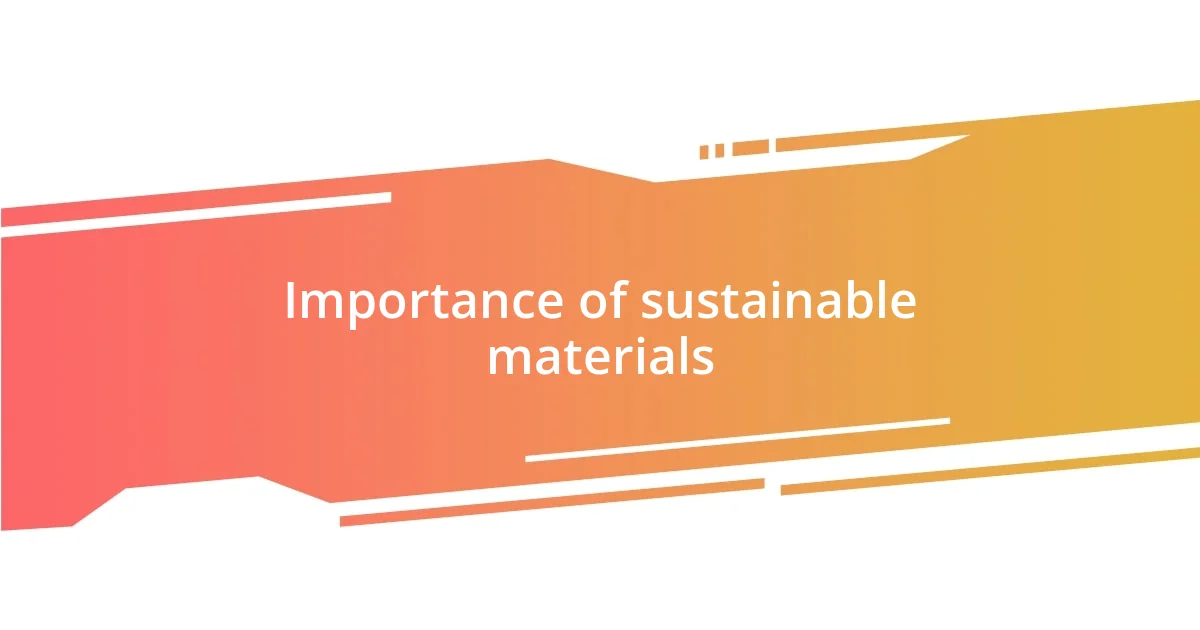
Importance of sustainable materials
Sustainable materials are pivotal in ethical toy production because they directly reduce environmental impact and support long-term ecological health. I remember unboxing a beautifully crafted toy made from bamboo; I was not just impressed by its aesthetics but also by its sustainable sourcing. The fact that bamboo is a fast-growing, renewable resource made me feel good about my purchase knowing it contributes to a cleaner planet.
Here are some critical reasons why sustainable materials matter in toy production:
– Reduction of Waste: Sustainable materials often come from recyclable or biodegradable sources, lessening the burden on landfills.
– Resource Conservation: Utilizing materials like reclaimed wood preserves forests and prevents the depletion of natural resources.
– Child Safety: Many sustainable toys are free from harmful chemicals and toxins, ensuring a safer play environment for kids.
– Support for Ethical Practices: Sourcing sustainable materials often aligns with fair trade practices, fostering positive social impact for communities involved in production.
When I look at my children playing with their eco-friendly toys, it brings me joy knowing that these choices reflect a deeper commitment to the well-being of our planet. It’s a small yet meaningful step that makes me feel connected to the larger movement toward sustainability.
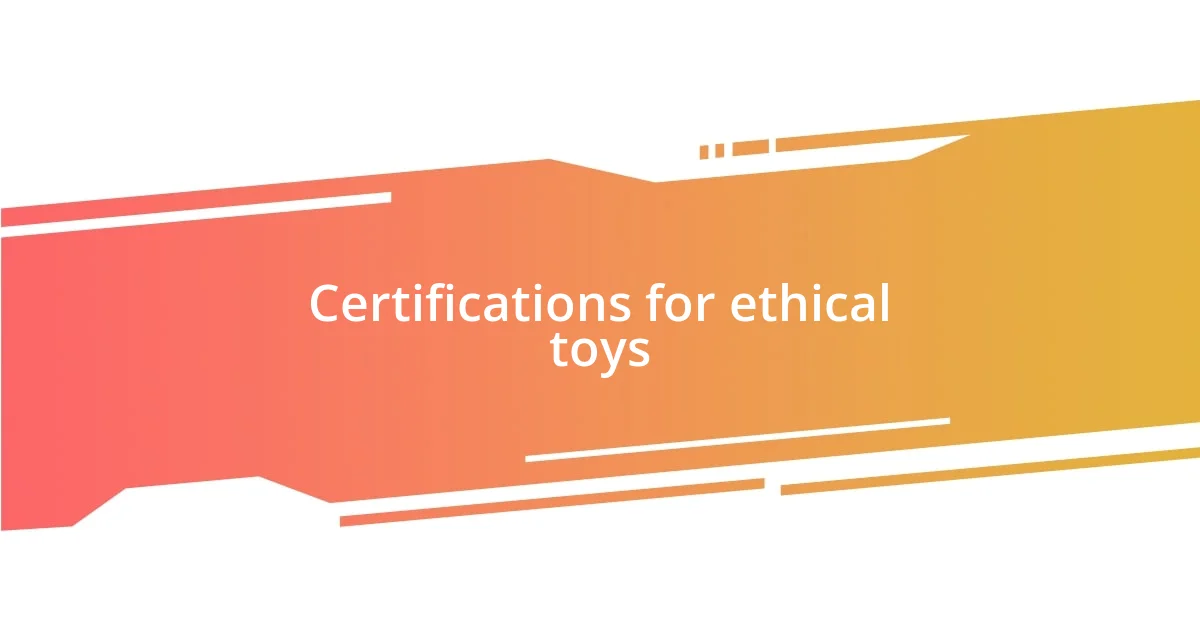
Certifications for ethical toys
Certifications play a significant role in identifying ethical toys on the market. One day, while browsing in a local toy store, I noticed a brand proudly displaying a certification seal that promised both safety and ethical production. It made me think about how these labels can serve as trusted guides for parents like me, ensuring that our purchases contribute to positive social change.
Not all certifications are created equal, and I love how some organizations focus on various aspects of ethical production—be it environmental sustainability, fair labor practices, or child safety. For instance, the Fair Trade certification resonates with me because it promotes fair wages for workers, encouraging a more equitable economy. When I see such labels, I feel a sense of relief, knowing I can support brands that align with my values.
Familiarizing ourselves with these certifications can transform our shopping experience. I once had a lovely conversation with a shop owner about how a specific toy brand not only held an eco-label but also collaborated directly with communities in need. Hearing firsthand about their impact inspired me to make more considerate choices. Each certification tells a story that connects us to the global community, reinforcing the idea that the toys we choose can create waves of positive change.
| Certification | Focus Area |
|---|---|
| Fair Trade | Supports fair wages and ethical labor practices |
| GOTS (Global Organic Textile Standard) | Ensures organic materials and ethical manufacturing processes |
| CE Marking | Indicates compliance with European safety standards |
| ASTM (American Society for Testing and Materials) | Ensures safety standards for toys in the U.S. |
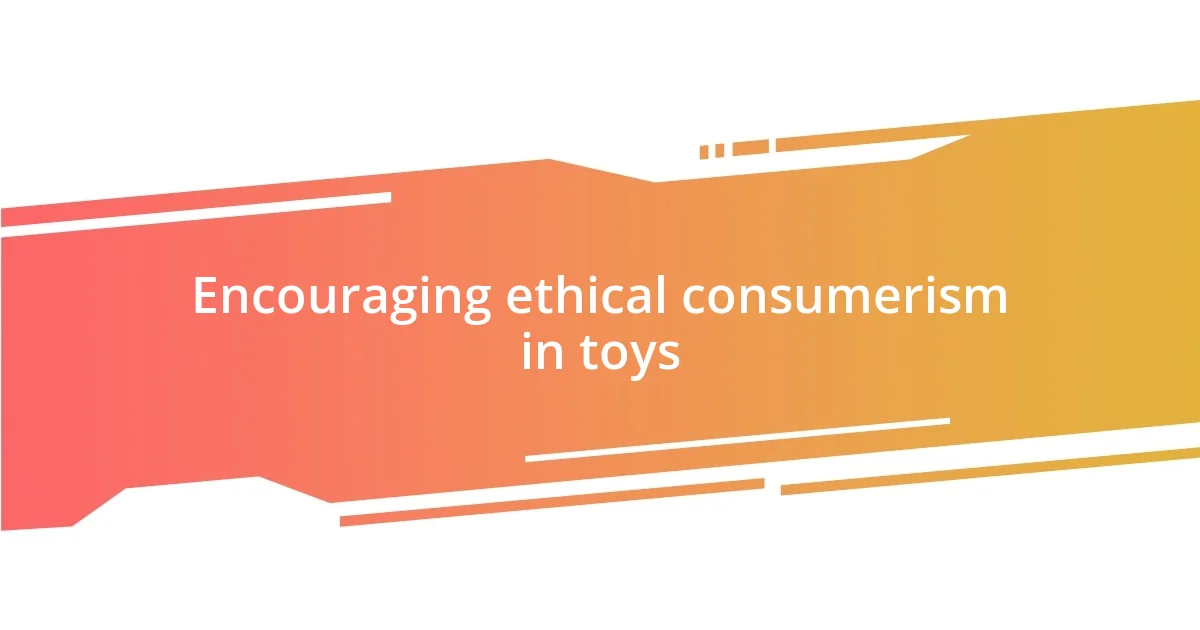
Encouraging ethical consumerism in toys
I’ve been amazed by how ethical consumerism in toys can shift the landscape of production. I remember vividly the excitement each time I brought home a toy that wasn’t just fun but also made responsibly. With every purchase, I sensed I was doing my part to encourage companies to prioritize ethical practices, creating a ripple effect that goes beyond the shopping cart.
What if we all took a moment to consider the origin of the toys we buy for our children? I often pause in front of toy aisles, contemplating whether the items I’m holding align with my values. It’s these simple choices that empower us as consumers to support brands that prioritize ethical production and sustainability, fostering a future where our kids are nurtured by toys that care for the world around them.
Engaging in ethical consumerism can truly become a family affair. I’ve turned shopping trips into educational moments with my kids, discussing why we choose certain brands over others. It’s heartwarming to see their understanding grow, and I often reflect on how these early lessons in conscious consumption can shape their values for years to come. After all, teaching them the importance of supporting ethical practices equips them to make informed choices as they navigate their own consumer journey.










